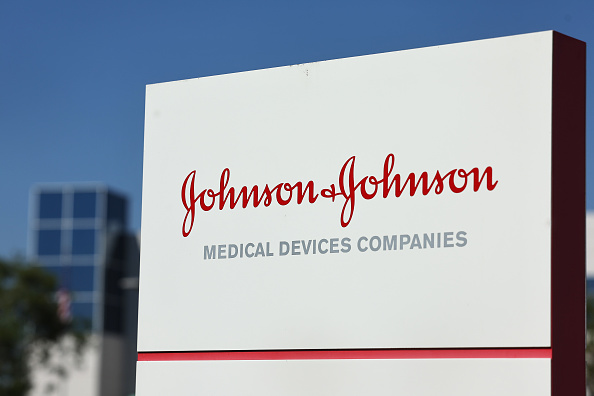On Feb. 9, Johnson & Johnson’s nipocalimab, a therapy in development for hemolytic disease of the fetus and newborn (HDFN), was granted breakthrough therapy designation by the FDA.
Nipocalimab is a monoclonal antibody infused into the bloodstream of a pregnant woman at high risk for severe HDFN that aims to selectively block the neonatal Fc receptor and reduce levels of circulating immunoglobulin G (IgG) antibodies that attack red blood cells in babies.
Over the past five years, the U.S. Food and Drug Administration has granted the novel therapy a Fast Track designation, orphan drug status, and most recently Breakthrough Therapy designation for the treatment of pregnant individuals at high risk of HDFN. If approved, nipocalimab could become another treatment option for mothers and infants affected by this rare disease.
A lack of standardized care

Katie Shanahan, director of development for the Allo Hope Foundation, is one of them. Her experience with HDFN has a happy ending, but she said she still carries the trauma from those dark months. She underwent four intrauterine blood transfusions while pregnant, which she said were “all difficult and frightening in their own way.”
After his birth, her baby underwent a 10-day stay in the neonatal intensive care unit, four blood transfusions and weeks of darbepoetin treatment to stimulate his bone marrow to produce its own red blood cells. At five months, Shanahan’s son, Liam, was finally medically cleared.
Shanahan knows she’s fortunate to have a thriving two-year-old She also knows the toll she paid is more the rule than the exception. Among 127 women with a history of alloimmunization in pregnancy, 91% reported symptoms of anxiety, 75% guilt, 68% self-doubt, 71% isolation, 68% depression, and 61% post-traumatic stress disorder, according to a 2024 American Journal of Obstetrics & Gynecology study.
“There remains a lack of standardized care for HDFN in the United States and globally,” Shanahan said.“The medical complexity of this rare disease and lack of knowledge among providers creates a heavy psychosocial burden on families.”
Founder and chairman of the board of directors for the Fetal Health Foundation Lonnie Sommers said intrauterine blood transfusions require highly skilled clinicians and medical facilities, which can be difficult for women to access depending on where they live and their socioeconomic situation. They also carry risks, as does another commonly used strategy for pregnancies at risk for HDFN: early delivery of the baby in the event of severe complications.
“When any fetal disease/syndrome or anomaly is diagnosed, having the most minimally invasive and easily administered treatments is imperative for a successful delivery, and further, limited morbidity issues is the primary goal,” said Lonnie Sommers, founder and chairman of the board of directors for the Fetal Health Foundation, Littleton, Colorado. “Nipocalimab represents a real potential breakthrough for HDFN.”
54% achieve primary endpoint in trial
The Breakthrough Therapy designation provides nipocalimab developer Johnson & Johnson an expedited pathway to regulatory review that includes the involvement of senior FDA managers. Nipocalimab is the sole therapy reported to be in clinical development for HDFN.
Preliminary data supporting nipocalimab’s Breakthrough Therapy designation stemmed from a phase 2 clinical trial called Unity. Among 13 alloimmunized pregnant women at high risk for early-onset severe HDFN who received weekly intravenous infusions of nipocalimab, 54% met the study’s primary endpoint: a live birth at or after gestational age 32 weeks without the need for intrauterine transfusion.. The median gestational age at birth was 37 weeks and one day, and just one infant required a simple transfusion after birth.

“There was real personal excitement for me throughout the study, which was open label, and therefore the study teams were able to monitor outcomes and have awareness of babies being born in real time,” said Yosuke Komatsu, M.D., Ph.D., senior director of clinical research maternal-fetal medicine and the global clinical lead for the nipocalimab HDFN program at Johnson & Johnson.
Rates of severe or serious adverse events were low and consistent with events associated with pregnancy, HDFN and gestational age at delivery. Furthermore, 12 of the 13 women enrolled in Unity had live-born infants; and among mothers with live births, the median gestational age at the first intrauterine blood transfusion was 28 weeks and 3 days. There were no reports of fetal hydrops, an abnormal accumulation of interstitial fluid in two or more body areas of the fetus that can result in stillbirth or death after delivery.
Two women who experienced live births had severe adverse events possibly related to nipocalimab: One had a subchorionic hematoma, fetal growth restriction and fetal heart rate deceleration, and the other had premature separation of the placenta. There were no maternal or infant deaths.
With no approved therapeutics for the treatment of HDFN, the level of participant engagement in Unity was strong, Komatsu noted. He hopes to see the same level of engagement in the phase 3 trial called Azalea, which he oversees globally.
Komatsu said he treated his first patient with HDFN in the 1980s when there was no noninvasive way to detect fetal anemia. As a result, he frequently had to rely on amniocentesis, an invasive procedure that also carries the risk of maternal and fetal blood mixing and sensitization.
“As you know, new drug development in maternal-fetal medicine (MFM) has been very scarce despite huge unmet needs,” he said. “As an MFM specialist working in the industry, I feel a sense of obligation to resolve this issue.”
Hope for those in need of more options
Azalea is a randomized, double-blind, multicenter study looking to enroll 120 pregnant women at risk for severe HDFN. Participants will receive weekly intravenous infusions of either nipocalimab or placebo from randomization through gestational week 35. The study began in late-December 2023, and the estimated date of completion is July 2029.
If the Azalea trial confirms nipocalimab’s effectiveness and the therapy makes it to market, the treatment experience of pregnant women at high risk of HDFN would change completely, Shanahan said.
“It would be a more standardized treatment, potentially alleviating major gaps in care,” she added.
The therapy would also provide another option for alloimmunized women seeking to grow their families. Shanahan said her interest in nipocalimab is personal, in part. As the investigational therapy moves forward through clinical trials, she’s considering the therapy for future pregnancies. For now, however, she and her husband, Alec, are following her MFM specialist’s recommendation: in vitro fertilization with preimplantation genetic diagnosis for antigen status of the embryos.
When Shanahan was first diagnosed with antibodies, she lost hope, she said. Because her condition is rare, she figured no one would have an interest in helping women already sensitized.
“This drug brings an incredible amount of hope to our patient community who are looking for more options in growing their family. With all clinical research, there are obvious concerns, especially with women in the trial receiving a placebo. But I do think it could be life changing for alloimmunization, and I am very excited to see how phase 3 goes.”

